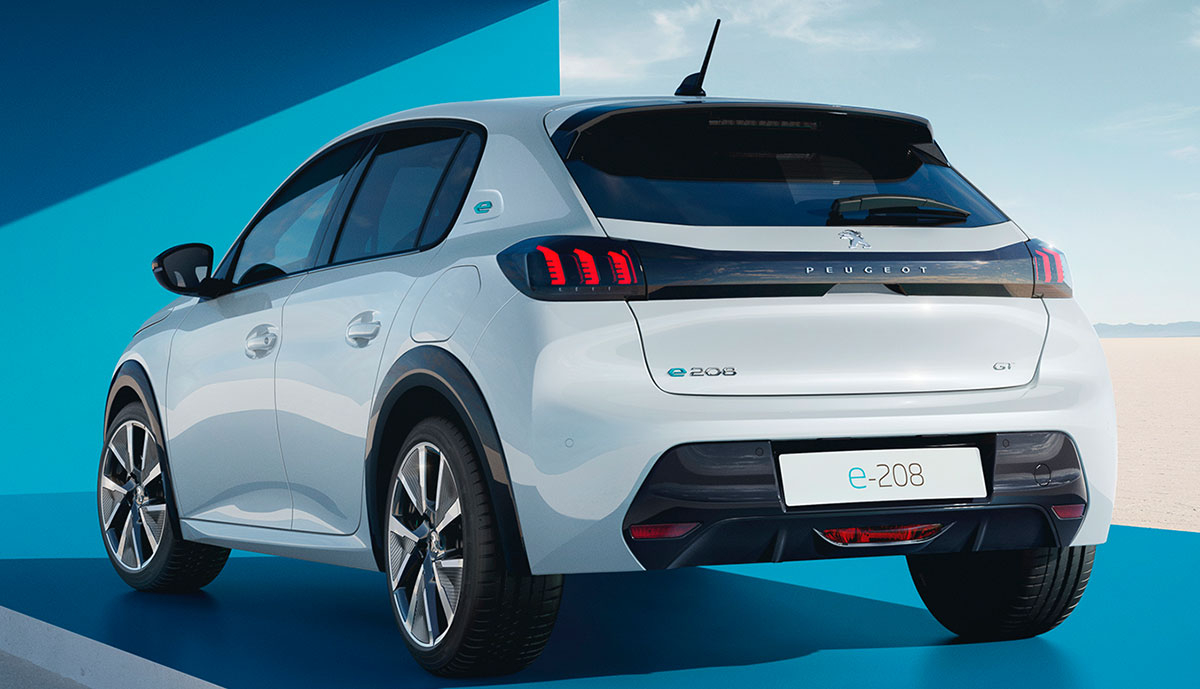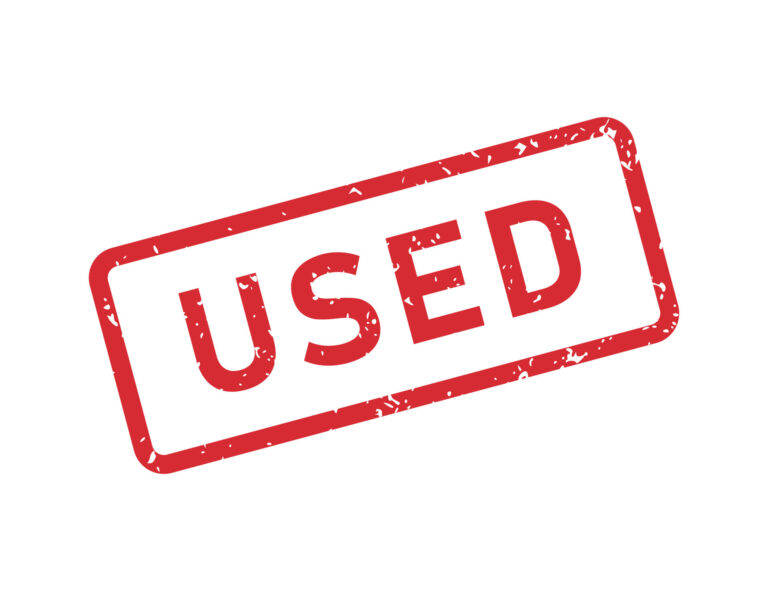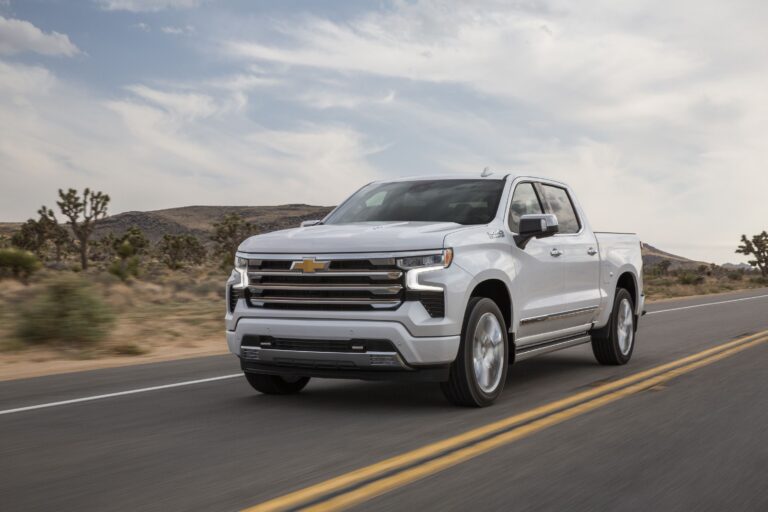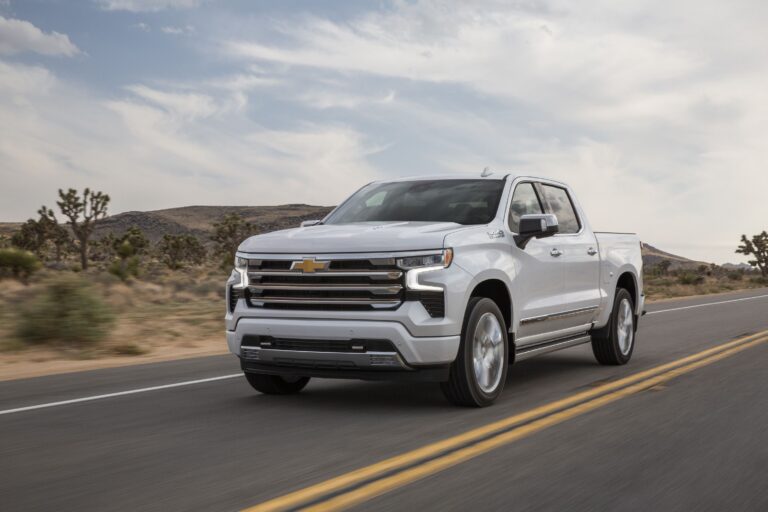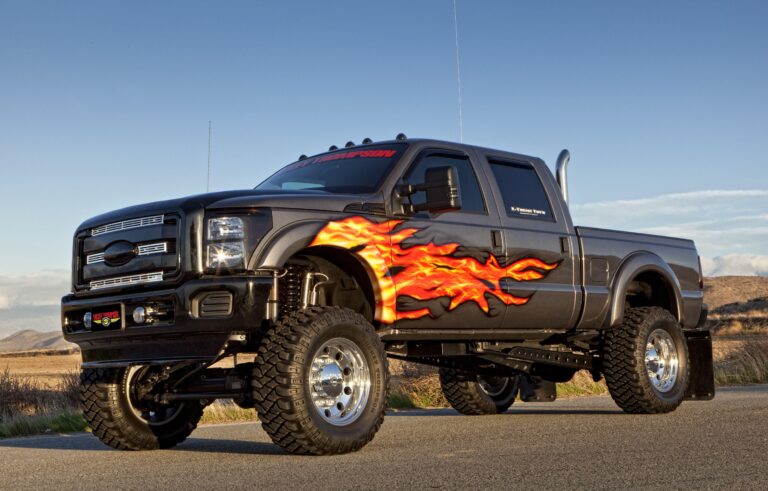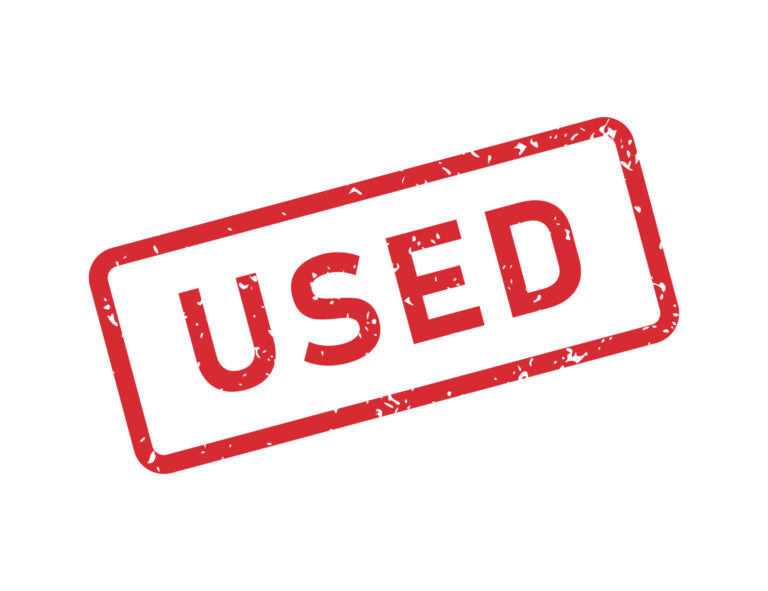Peugeot Car Brand: A Comprehensive Guide to the Lion’s Roar
Peugeot Car Brand: A Comprehensive Guide to the Lion’s Roar cars.truckstrend.com
Peugeot. The name evokes images of sleek design, innovative engineering, and a rich heritage stretching back over two centuries. More than just a car manufacturer, Peugeot is a symbol of French automotive excellence, a brand that has consistently pushed the boundaries of design, technology, and performance. From its humble beginnings as a family-run mill to its current standing as a global automotive powerhouse, Peugeot has navigated industrial revolutions, world wars, and fierce competition, always emerging with its distinct identity and an unwavering commitment to the "Art of Motion."
This comprehensive guide delves into the fascinating world of Peugeot, exploring its storied past, its current offerings, and its ambitious vision for the future. Whether you’re a long-time admirer, a prospective buyer, or simply curious about one of the world’s oldest car brands, this article will provide you with a detailed understanding of what makes Peugeot truly unique.
Peugeot Car Brand: A Comprehensive Guide to the Lion’s Roar
1. A Storied Legacy: From Mills to Motoring Mastery
The roots of Peugeot trace back to 1810, when the Peugeot family, originally millers, diversified into steel production, manufacturing everything from coffee grinders and tools to crinoline skirts. It was Armand Peugeot, a visionary and an engineer, who recognized the nascent potential of the automobile. In 1889, the first Peugeot vehicle, a steam-powered tricycle, rolled out, followed shortly by internal combustion engine cars. This marked the true birth of Peugeot as an automobile manufacturer.
Over the decades, Peugeot quickly gained a reputation for reliability and innovation. They pioneered features like independent front suspension, mass production techniques, and successful participation in motor racing, including winning the inaugural Indianapolis 500 in 1913. The iconic "lion" emblem, symbolizing strength, flexibility, and speed, was adopted in 1858 and became synonymous with the brand’s quality and prowess. This deep-seated history isn’t just a footnote; it’s the bedrock upon which Peugeot’s modern identity is built, imbuing its vehicles with a sense of enduring craftsmanship and forward-thinking spirit.
2. The Peugeot Design Language: Elegance, Emotion, and the i-Cockpit
Peugeot cars are instantly recognizable, thanks to a distinctive design philosophy that blends elegance with an assertive, almost predatory, stance – a nod to its lion emblem. Modern Peugeot vehicles feature sharp lines, sculpted surfaces, and signature LED "fang" daytime running lights that give them a unique and sophisticated presence on the road.
However, the most revolutionary aspect of Peugeot’s design lies within: the i-Cockpit. Introduced in 2012, the i-Cockpit redefines the driver’s environment with:
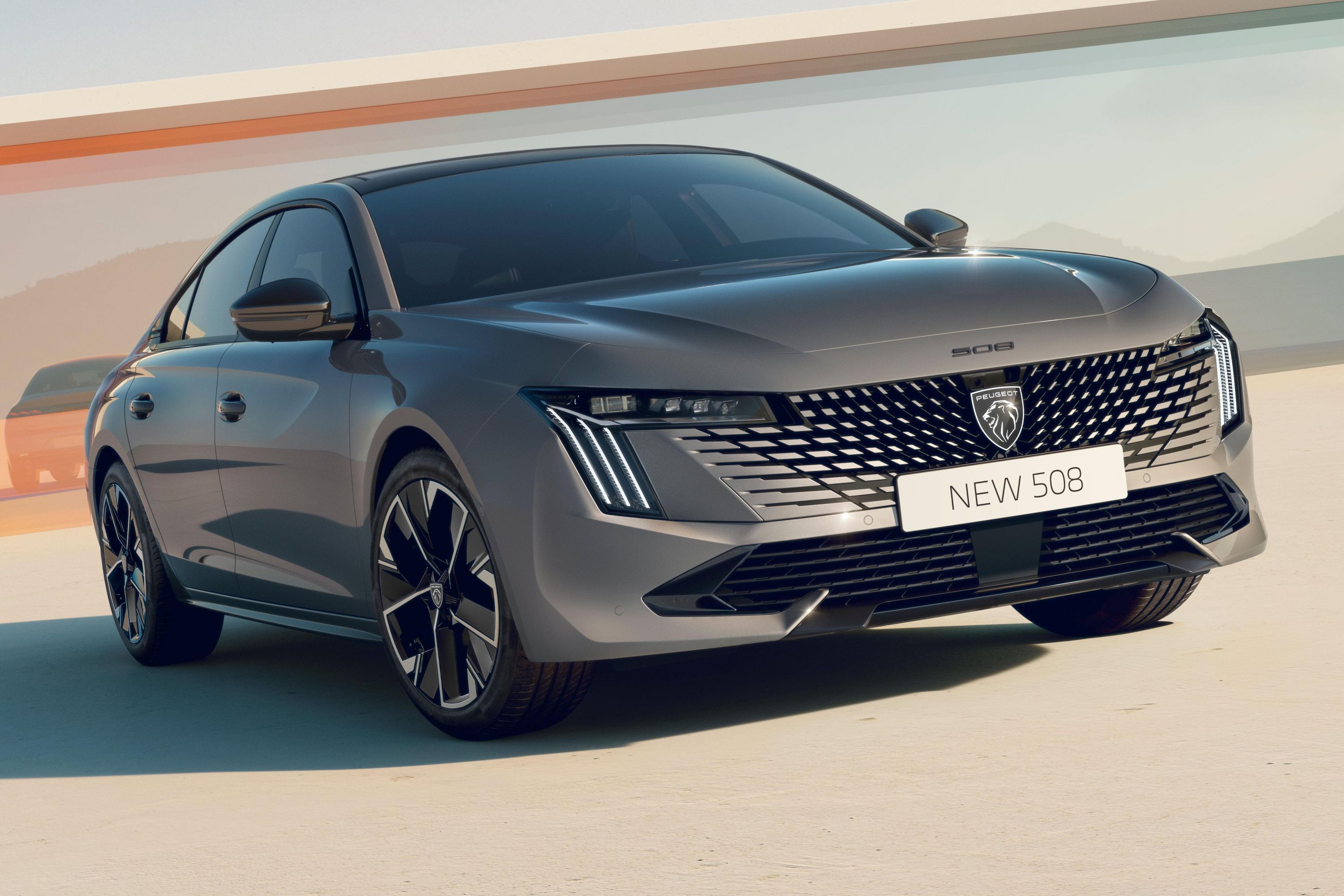
- A Compact Steering Wheel: Smaller than traditional wheels, it enhances agility and provides a more engaging driving feel.
- A Head-Up Digital Instrument Cluster: Positioned above the steering wheel, it allows drivers to view essential information without taking their eyes off the road.
- A Large Touchscreen Infotainment System: Ergonomically integrated into the dashboard, it controls various vehicle functions.
- "Piano Key" Toggle Switches: Providing tactile control for frequently used features, adding a touch of premium sophistication.

The i-Cockpit aims to create an intuitive, immersive, and stimulating driving experience, setting Peugeot apart from its competitors and reinforcing its commitment to driver-centric innovation. While initially a point of contention for some, its popularity has grown, becoming a hallmark of the brand’s interior design.
3. Engineering Excellence: Powering the Pride
Beneath their striking exteriors, Peugeot vehicles are built on robust and versatile platforms that underpin a wide range of models. Peugeot, as part of Stellantis (which also includes Citroën, DS, Opel, Fiat, Chrysler, and others), benefits from shared technological advancements and economies of scale.

Key engineering highlights include:
- Efficient Powertrains: Peugeot offers a diverse range of petrol (PureTech), diesel (BlueHDi), and increasingly, electrified powertrains. Their PureTech engines are particularly lauded for their efficiency and spirited performance, often winning international engine awards.
- Advanced Platforms: The Common Modular Platform (CMP) and Efficient Modular Platform (EMP2) are highly adaptable, supporting everything from compact hatchbacks to large SUVs, and are designed with electrification in mind, accommodating both internal combustion engines and fully electric powertrains.
- Suspension Tuning: Peugeot consistently prioritizes a comfortable yet engaging ride. Their suspension systems are meticulously tuned to absorb road imperfections while maintaining excellent body control, a characteristic often described as the "Peugeot ride."
- Safety Technologies: Modern Peugeots are equipped with a comprehensive suite of advanced driver-assistance systems (ADAS), including adaptive cruise control, lane-keeping assist, automatic emergency braking, and blind-spot monitoring, contributing to high Euro NCAP safety ratings.
4. The Diverse Pride: Exploring Peugeot’s Model Lineup
Peugeot offers a comprehensive range of vehicles catering to diverse needs and preferences, from city cars to large family SUVs and commercial vehicles.
- City Cars & Hatchbacks:
- 208: A stylish and compact supermini, available with petrol, diesel, and fully electric (e-208) powertrains, perfect for urban environments.
- 308: A sophisticated and dynamic compact family car, offered as a hatchback and SW (estate), also with electrified options (PHEV and soon full EV).
- SUVs & Crossovers: This segment is where Peugeot has seen immense success, thanks to their bold design and practical interiors.
- 2008: A compact SUV that combines urban agility with adventurous styling, also available as an e-2008.
- 3008: A multi-award-winning mid-size SUV, known for its distinctive design, upscale interior, and efficient engines, including plug-in hybrids.
- 5008: A seven-seater SUV offering generous space and versatility for larger families, sharing much of its DNA with the 3008.
- Saloons & Estates:
- 508: A sleek and elegant D-segment car, available as a fastback and SW, offering a premium experience with a focus on driver engagement and sophisticated design, including powerful PHEV variants.
- 408: A new cross-segment vehicle blending SUV codes with fastback elegance, offering a unique proposition in the market.
- Light Commercial Vehicles (LCVs): Peugeot has a strong presence in the commercial sector with a range of vans and people carriers, including the Partner, Expert, and Boxer, many of which are also available with electric powertrains.
5. The Peugeot Driving Experience: Agility, Comfort, and Control
Driving a Peugeot is often described as a distinctive experience. The compact steering wheel of the i-Cockpit, combined with finely tuned chassis and suspension, contributes to a feeling of agility and directness. Peugeot vehicles tend to strike an excellent balance between ride comfort and dynamic handling. They absorb bumps with composure, yet remain composed and responsive when tackling corners.
The driving experience is not about raw power (though performance variants exist) but about a harmonious blend of precision, comfort, and sensory engagement. The quiet cabins, quality materials, and ergonomic layout further enhance the journey, making both short commutes and long drives enjoyable. This "Peugeot feel" is a testament to the brand’s commitment to driver satisfaction and its unique approach to vehicle dynamics.
6. Embracing the Future: Electrification and Sustainable Mobility
Peugeot is at the forefront of the automotive industry’s shift towards electrification. The brand has committed to offering an electrified version of every model in its lineup, moving towards a fully electric future. This strategy involves:
- Full Electric Vehicles (EVs): Models like the e-208 and e-2008 are already popular choices, offering decent range and strong performance for urban and suburban use. More full EVs are planned across the range.
- Plug-in Hybrid Electric Vehicles (PHEVs): Many of Peugeot’s larger models, such as the 3008, 508, and soon the 408, are available as PHEVs, offering the flexibility of electric-only driving for shorter trips and the range of a petrol engine for longer journeys.
- Hydrogen Fuel Cell Technology: Peugeot is also exploring hydrogen fuel cell technology for its commercial vehicles, demonstrating a diversified approach to sustainable mobility.
Beyond powertrains, Peugeot is also exploring new mobility solutions, connectivity services, and autonomous driving technologies, aiming to provide comprehensive and sustainable transportation for the future.
7. Owning a Peugeot: Reliability, Maintenance, and Value
Modern Peugeots have significantly improved their reputation for reliability and build quality. As part of Stellantis, they benefit from robust engineering standards and shared componentry with other reputable brands.
- Reliability: Recent surveys and owner reviews generally place Peugeot as a reliable brand, particularly for its powertrains and electronics. Regular servicing is key, as with any modern vehicle.
- Maintenance: Peugeot’s maintenance costs are generally competitive. Parts availability is good, especially in Europe, and the dealer network is extensive.
- Resale Value: While historically not as strong as some German rivals in certain markets, the improved quality, design appeal, and increasing popularity of Peugeot’s SUV range have positively impacted their resale values. Electric variants are also holding their value well in the growing EV market.
- Warranty: Peugeot typically offers a standard manufacturer warranty (e.g., 3 years/100,000 km in many regions), with separate warranties for EV batteries (e.g., 8 years/160,000 km).
8. Practical Advice for Prospective Owners: Choosing Your Peugeot
Considering a Peugeot? Here’s some practical advice:
- Define Your Needs: Are you primarily an urban driver, a family requiring space, or someone who covers long distances? This will guide your choice between a 208, 3008, or 508.
- Test Drive the i-Cockpit: The unique steering wheel and instrument cluster layout are a love-it-or-hate-it feature for some. Ensure you’re comfortable with it before committing.
- Consider Electrification: If suitable for your lifestyle, explore the e-208, e-2008, or PHEV variants. Factor in charging infrastructure and potential savings on fuel and taxes.
- Explore Trim Levels: Peugeot offers various trim levels (e.g., Active, Allure, GT Line, GT) that significantly impact features, materials, and styling. Determine which offers the best balance of features and value for your budget.
- Research Running Costs: While generally good, check specific fuel consumption figures (or EV range), insurance groups, and servicing schedules for the model you’re interested in.
- Check Local Deals and Incentives: Dealers often have special offers, and governments may provide incentives for electric or hybrid vehicles.
9. Navigating the Challenges: Peugeot in a Dynamic Market
Despite its strengths, Peugeot operates in an intensely competitive global automotive market.
- Brand Perception: In some regions, Peugeot has historically faced challenges in shedding its "mass-market" perception and competing directly with premium brands, despite offering increasingly premium designs and features.
- Global Competition: The rise of new entrants, particularly from Asia, and the established dominance of German and Japanese manufacturers, pose continuous challenges.
- Technological Shift: The rapid transition to electric vehicles requires massive investment and agility to remain competitive and meet evolving consumer demands and regulatory pressures.
- Supply Chain Issues: Like all automakers, Peugeot has faced disruptions due to semiconductor shortages and other global supply chain challenges, impacting production and delivery times.
Peugeot’s strategy to overcome these challenges includes a strong focus on distinctive design, continuous technological innovation (especially in electrification), expanding its global footprint, and leveraging its position within the Stellantis group to achieve scale and efficiency.
Peugeot Car Brand: Estimated Starting Price Table (Passenger Vehicles)
Please note: Prices are estimated starting RRP and can vary significantly based on region, specific trim level, optional extras, market conditions, government incentives, and currency exchange rates. This table is for illustrative purposes only. Prices are generally presented in EUR or USD equivalent.
| Model | Type | Key Features | Estimated Starting Price (EUR/USD Equivalent) |
|---|---|---|---|
| Peugeot 208 | Compact Hatchback | i-Cockpit, LED DRLs, various petrol/diesel/electric options | €21,000 – €23,000 / $23,000 – $25,000 |
| Peugeot e-208 | Electric Hatchback | 50 kWh battery, ~362 km WLTP range, instant torque, silent drive | €34,000 – €36,000 / $37,000 – $39,000 |
| Peugeot 308 | Compact Hatchback/SW | Sharper design, new i-Cockpit, petrol/diesel/PHEV options | €27,000 – €29,000 / $30,000 – $32,000 |
| Peugeot 2008 | Compact SUV | SUV styling, versatile interior, petrol/diesel/electric options | €26,000 – €28,000 / $28,000 – $30,000 |
| Peugeot e-2008 | Electric SUV | 50 kWh battery, ~340 km WLTP range, elevated driving position | €38,000 – €40,000 / $41,000 – $43,000 |
| Peugeot 3008 | Mid-size SUV | Distinctive design, premium interior, i-Cockpit, petrol/diesel/PHEV options | €34,000 – €36,000 / $37,000 – $39,000 |
| Peugeot 5008 | 7-seater SUV | Spacious interior, modular seating, premium features, petrol/diesel options | €37,000 – €39,000 / $40,000 – $42,000 |
| Peugeot 408 | Fastback Crossover | Unique silhouette, elevated stance, i-Cockpit, petrol/PHEV options | €32,000 – €34,000 / $35,000 – $37,000 |
| Peugeot 508 | Fastback/SW | Sleek design, premium cabin, engaging drive, petrol/diesel/PHEV options | €40,000 – €42,000 / $43,000 – $45,000 |
Note: Prices do not include destination charges, taxes, or additional options.
Frequently Asked Questions (FAQ) about Peugeot Car Brand
Q1: Is Peugeot a reliable car brand?
A1: Yes, modern Peugeot vehicles have significantly improved their reliability and build quality. They consistently rank well in independent reliability surveys, especially in Europe, demonstrating good mechanical integrity and fewer electronic issues compared to their past reputation.
Q2: Where are Peugeot cars manufactured?
A2: Peugeot cars are primarily manufactured in France (e.g., Sochaux, Mulhouse, Poissy) and Spain (e.g., Vigo). As part of the Stellantis group, production can also occur in other global facilities depending on the model and target market.
Q3: What is the Peugeot i-Cockpit?
A3: The Peugeot i-Cockpit is a signature interior design concept featuring a compact steering wheel, a head-up digital instrument cluster positioned above the steering wheel, and a large central touchscreen infotainment system. It’s designed to provide a more intuitive and engaging driving experience.
Q4: Are Peugeot cars expensive to maintain?
A4: Generally, Peugeot cars are considered to have competitive maintenance costs, particularly in markets where the brand has a strong presence. Parts are readily available, and servicing can be done at official dealerships or independent garages.
Q5: Does Peugeot offer electric cars?
A5: Yes, Peugeot has a strong commitment to electrification. They offer fully electric (e.g., e-208, e-2008) and plug-in hybrid electric vehicles (PHEVs) across their model range, with plans to electrify their entire lineup in the coming years.
Q6: What does the Peugeot lion logo symbolize?
A6: The lion emblem, adopted in 1858, symbolizes the brand’s core values: strength (like the lion’s teeth), flexibility (like its spine), and speed (like its agility). It represents the enduring quality and performance of Peugeot products.
Q7: Is Peugeot considered a luxury brand?
A7: While not a traditional luxury brand like Mercedes-Benz or BMW, Peugeot has moved significantly upmarket in terms of design, material quality, and technology, particularly with models like the 3008, 508, and 408. It aims for a premium mainstream position, offering a blend of sophistication and accessibility.
Conclusion: The Enduring Roar of the Lion
Peugeot stands as a testament to enduring innovation and a relentless pursuit of automotive excellence. From its deep historical roots to its forward-looking vision for electrification and sustainable mobility, the brand has consistently evolved, adapting to changing consumer demands and technological advancements. Its distinctive design language, characterized by the iconic i-Cockpit and elegant exteriors, sets it apart, while its commitment to driving pleasure and engineering efficiency ensures a compelling ownership experience.
In a rapidly transforming automotive landscape, Peugeot is not merely surviving; it is thriving, powered by a rich heritage and a clear roadmap for the future. The lion’s roar continues to resonate, promising exciting new chapters for this remarkable French marque as it navigates the roads of tomorrow. Peugeot remains a brand for those who appreciate history, embrace innovation, and seek a car that is as much a statement of style as it is a mode of transport.
